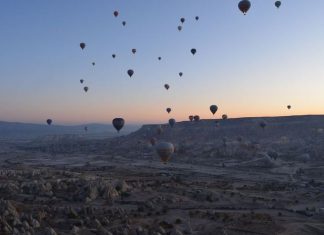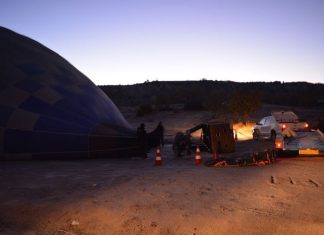The inhabitants assembled in large numbers to celebrate the festival, making a brave show and wearing their richest apparel. The Sultan Abu Yahya arrived on horseback, accompanied by all his relatives, courtiers, and officers of state walking on foot in a stately procession. After the recital of the prayer and the conclusion of the Allocution the people returned to their homes.
Ibn Battuta leaves Tunis with the annual pilgrim caravan
Some time later the pilgrim caravan for the Hijaz was formed, and they nominated me as their qadi [judge]. We left Tunis early in November [1325], following the coast road through Susa Sfax, and Qabis, where we stayed for ten days on account of incessant rains. Thence we set out for Tripoli, accompanied for several stages by a hundred or more horsemen as well as a detachment of archers, out of respect for whom the Arabs [brigands] kept their distance.
I had made a contract of marriage at Sfax with the daughter of one of the syndics at Tunis, and at Tripoli she was conducted to me, but after leaving Tripoli I became involved in a dispute with her father, which necessitated my separation from her. I then married the daughter of a student from Fez, and when she was conducted to me I detained the caravan for a day by entertaining them all at a wedding party.
Arrival at Alexandria
At length on April 5th (1326) we reached Alexandria. It is a beautiful city, well-built and fortified with four gates and a magnificent port. Among all the ports in the world I have seen none to equal it except Kawlam [Quilon] and Calicut in India, the port of the infidels [Genoese] at Sudaq [Sudak, in the Crimea] in the land of the Turks, and the port of Zaytun [Canton?] in China, all of which will be described later.
The famous lighthouse, one of the “wonders of the ancient world”
I went to see the lighthouse on this occasion and found one of its faces in ruins. It is a very high square building, and its door is above the level of the earth. Opposite the door, and of the same height, is a building from which there is a plank bridge to the door; if this is removed there is no means of entrance. Inside the door is a place for the lighthouse-keeper, and within the lighthouse there are many chambers.
Read More about Ibn Battuta part 78








